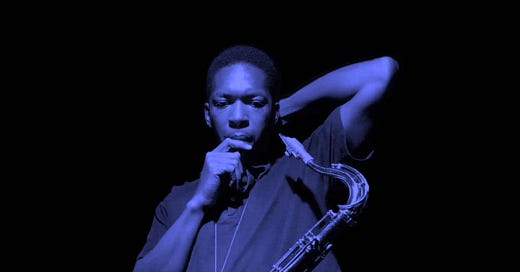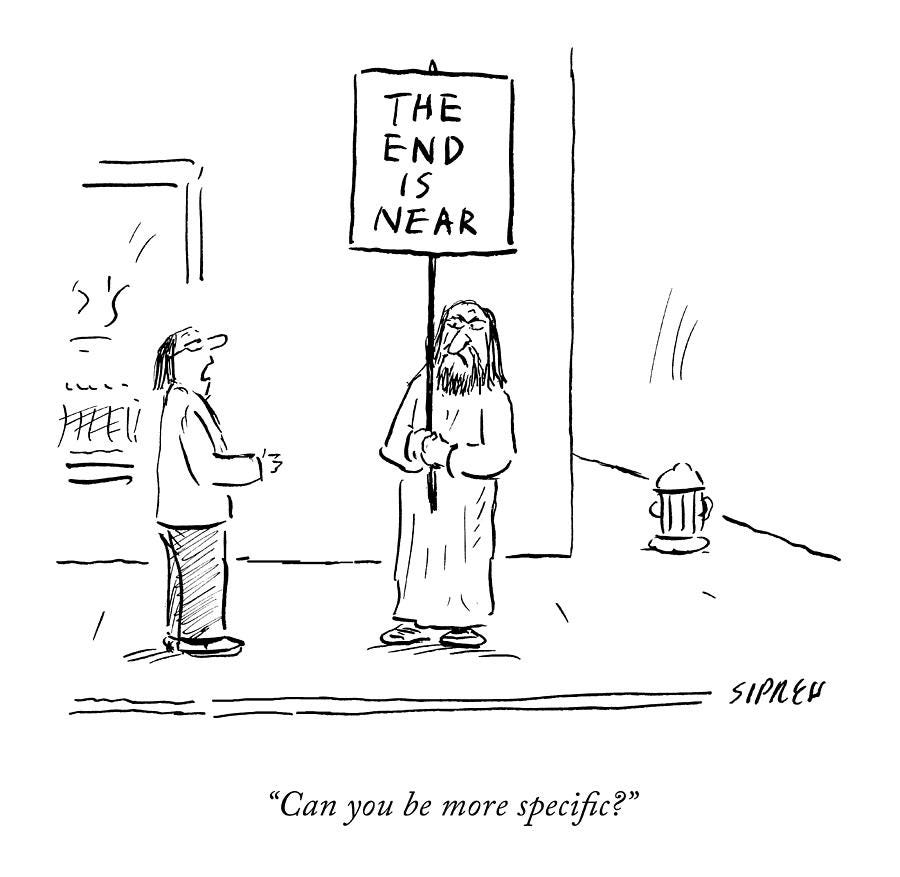Base-rate error
Here’s where Ted misses the boat: we should expect most new music to suck, and we should expect the oldies to be better. That’s true not just for music, but practically everything. Let me explain.
Sturgeon’s Law says that 90% of everything is crap— cookies, books, music, hairstyles, medical treatments, architecture, psychology, fashion, movies, stuff you bought from Amazon, whatever.2 Sturgeon has a pretty good point here, even if you think of the goodness of all those things as normally distributed on a bell curve. Move about 1.5 standard deviations above average, and 90% of everything falls below that. For example, if you have an IQ of 120, you’re in the 90th percentile. That’s still far from genius.
If you’re a modestly discerning music aficionado, much less as sophisticated as Ted, maybe you’ll think one out of ten new songs is worth starring on your playlist. Following Sturgeon, most is crap. You’re probably thinking, “but wait: doesn’t that mean that most of the music from the past is also crap? So why think the oldies are better?” Excellent question.
Here’s part of the answer: because only the very best of the past has survived. Everyone knows Mozart, but only hard-core musicologists remember some third-rate hack from his time. Move further back than that and no one remembers. Get to let’s say Palestrina—can anyone name one third-rate composer from the 16th century? They are all lost in the mists of time.
Again, that’s true of everything. Everybody knows Plato and Aristotle, but is there anything that survives of Speusippus? Even things that are lurking in an obscure institutional collection, like some plodding piece from a 17th century issue of Acta Eruditorum, no one remembers. We don’t even need to go that far back. I just randomly grabbed a 1950 issue of The Review of Metaphysics. I haven’t even heard of one single author in that issue, much less the article they wrote.
What we remember is The Past’s Greatest Hits, and that is a deep, deep catalog. Everything new is automatically judged against those Greatest Hits, and very little can stand up to it. We don’t think about what the average writer or average musician produces compared to the average person of the past. We compare them to the very best of the past and conclude, correctly, that by comparison the new stuff is inferior.
Not only that, but we should expect the work of prolific producers to be worse than their past output. Nobody’s work just gets better and better over time. It’s up and down, right? So take a crazily prolific author like Stephen King—he can’t expect that his newest book is going to be better than his very best books of the past. Statistically it will probably be worse; there’s just too much to compete with.
Which leads us to a
Proof that things are bad and going to get worse
Anyone starting out at something is bad at it. New artists aren’t any good yet. Novice writers are cliched and clunky, neophyte baseball players can’t hit the ball, and beginner musicians only know three chords. Things are no better for experienced professionals. Established writers, musicians, athletes, scholars, whomever, are probably producing things that are worse than their best earlier work. Really it’s just regression to the mean; you’re more likely to turn in an average performance relative to your baseline, not an exceptional one.
Suppose someone rises to the occasion and adds to the World’s Greatest Hits. That means future people will have an even harder time beating what has been done before. It’s the problem with record-setting. The next person has an even higher bar to clear in order to get the record, and record-setting just gets harder and harder. When Roger Bannister ran the first sub-four minute mile in 1954, he was hailed as a hero performing at the limit of human abilities. Now to set the world record in the mile, you’d need to run almost 17 seconds faster than Bannister.
Getting back to music for a minute, plenty of people today can play as well as the astonishing players of the past. Loads of guitarists can shred as hard as Jimi Hendrix or Eddie Van Halen, and there’s virtuoso pianists as good as Liszt. Improvising over the Coltrane Changes in “Giant Steps” is a rite of passage for jazz saxophonists, but the pros can do it. Unfortunately, constantly raising the bar makes achieving the sublime that much more difficult, as I argue for in Hyperspace of Perception.
Therefore, if you’re new, you suck, if you’re old, you probably suck more than you used to, and almost everyone sucks compared to the greats of the past. On top of that, if you defy all odds and become great, that just makes it harder for future people to not suck by comparison.
Proof that things are good and going to get better
But wait! There’s a flip side to all that negativity. As we move into the future, the collection of The Past’s Greatest Hits just gets longer and longer. Which means there is more greatness for us to appreciate. There are more great books to read, more great music to hear, more impressive record-setting feats of strength and speed to admire.
From the point of view of consumers, things are getting better all the time. If you’re moaning that the last album from your favorite band wasn’t among their best, just grab another option from The Past’s Greatest Hits. Have you read all the great works of literature at the public library?3 No? Then why complain about the selection?
So the situation is worse for the creators, but better for the consumers. We should keep reading Richard Powers and listening to Keith Jarrett until there are new members of the Hall of Fame. The creators are pushing a boulder up a hill that gets steeper as they go but consumers are spoiled for choice.
Eternal vs. ephemeral
If everyone keeps replaying the greatest hits of the past until some new genius gets added to the canon, then what explains the obsession with the newest thing? If I tell anyone younger than me that I like to listen to, I dunno, The Red Hot Chili Peppers, the likeliest response is something like “get with the times, grandpa.” Even Ted Gioia says, “Not long ago, music was a young person’s domain—record labels courted the fickle, unformed tastes of adolescents and teens. The rest of us found our music in the niches and crannies of the business.” But why? Why think popular music is supposed to be about the youth?
It’s tempting to think it is all FOMO—kids afraid of missing out on the new cool whatever, so they are driving the obsession with whatever was just released two minutes ago.
However, I don’t think FOMO is a good explanation. Why would people fear missing out on the latest and trendy but not have an even greater fear of missing out on the genuinely great stuff from the past? They worry about missing some hot Netflix show, but not about failing to read Shakespeare.
Here’s my answer: art falls into two categories. (1) the things that made it into History’s Hall of Fame, and (2) the things that are meant to be ephemeral, like ice sculpture. Pop bands are mostly ice sculpture—cool for awhile and then they melt away, You’re tolerable, if niche, if you spend your time listening to Bach, but hopelessly out of touch if you still listen to whatever rock bands were popular when you were a teenager.
Books are another example. There are obviously ephemeral books that only exist to capture some transitory part of the zeitgeist, like nonfiction about contemporary politics, or celebrity profiles. Before long everyone forgets who Bob Dole or Clara Bow were and those books don’t matter. Even the authors know that. Other books become unintentionally dated, like The Electric Kool-Aid Acid Test, or 1950s sci-fi that imagines “the world of tomorrow,” as sock hops and soda jerks, but with robots.
People aren’t actually critical of the true greatest hits stuff. They’re dismissive of people still caring about old things that are not in the Hall of Fame, the music, books, TV shows, whatever, that were once relevant but never became eternal. Pick some band you loved when you were in high school that, objectively, was pretty good back in the day, but is not timelessly awesome. If you’re still going around unironically wearing that Toad the Wet Sprocket t-shirt, you’re acting like the transitory is eternal.
Mistakenly thinking the mortal is immortal explains why the kids mock the tastes of their elders and why they are right to do so. But why do most people care so much about the mortal books, music, movies, whatever instead of the immortal ones?
Here’s my take. Nothing is more important to me than my life. So you know what the most important time in world history is? Obviously it’s when I am alive. It follows that whatever politics are happening now are the most important politics. Whatever celebrities are famous now are the ones everyone needs to care about. Whatever books/music/movies are trendy in my peak years are the ones that really matter.
This is how millennialist cults crop up. If the most important time in world history is when I am alive, then all the big stuff will happen then too. Jesus is coming back in my lifetime, or the world is ending, or the revolution will happen. Here’s something no one ever says: the world is ending, in, oh, about 100 million years. Nobody carries a sign saying “the end of the world is far!” You can’t get followers for that.
The reality is that it is hardly ever 476 CE in Rome. Most of the time it’s simply an ordinary year in the Empire. Nonetheless, everyone thinks their time is special. I think the art from my generation is special above all others, and every other generation feels the exact same way about theirs. Everyone’s wrong, though, since 90% of it is crap (thanks, Sturgeon) and only the very smallest sliver is truly special.
It’s just that we can’t really wrap our heads around the idea that we won’t live forever and neither will all the things we love. It’s a kind of self-deception: because the TV shows, movies, books, music and whatever that my generation makes are immortally great, I too must be immortal. It’s very reassuring.
So we cling to the golden oldies, raising them up above the desert on two trunkless legs of stone, and inscribe beneath Look on my Works, ye Mighty, and despair!
We’re all Ozymandias.
I’d like to see AI create an image of that expression.
The stuff I write on Scriptorium Philosophia is an obvious exception that proves the rule.
I haven’t even read all the books in the room I’m currently sitting in. In fairness, I have a lot of books.







I love this. Gioia has always annoyed me and I think you've articulated why perfectly. My 19 yr old granddaughter shared her spotify playlist with me -- she starts with a 12 year old Lumineers track, then a cut from Sixpence None the Richer from '97, goes back a few more years with The Cranberries. Then we get more current music from Gigi Perez, tracks from the last decade by Hozier, Djo, Declan McKenna, before dipping back to classic Fleetwood Mac, Van Morrison, and Elton John. And so on. When I recount Gioia's claim that people are listening to so much older music because contemporary music sucks, she wrinkles up her nose. "That's dumb." To her it is all contemporary music and she easily floats across the decades. For the nearer decades she has to do more sorting herself to find the ones she loves; for older decades, as you suggest, time has done much of the sorting for her.
I appreciate the effort in the analysis but I think there are several problems with it.
First of all, the base-rate error isn't significant if both pools are big enough. There are more than enough "hits" released in 2024 to satisfy me if I only need 1,000 songs to get me through the year. That's a lot of songs for the average person to consume in one year. Yes, the back catalog is 50x or 100x bigger, but it doesn't matter. If I value novelty, I will find those 1,000 songs in last year's 10+ million releases.
In other words, if I need some lake rocks for my garden, I can find a dozen from a local pond just as easily as I can from Lake Superior. The volume advantage of the back catalog is irrelevant in this case.
Ted's point about back catalog outselling front catalog for the first time hit a nerve because the front catalog was dominant for so many decades meaning that people found plenty of hits to enjoy from the last year's releases despite the vastly greater number of back catalog hits at the time.
Second of all, while "novice" artists are bad, the ones who are breaking through this year are not novices! They are overnight-sensations-ten-years-in-the-making as the expression goes. They've already climbed far up that learning curve and every year there's a new crop of them.
For what it's worth, I think Ted's surprising fact is explained simply by the rise of retro culture in the 1990s that was backwards-looking rather than forwards. Kids have stopped rebelling against earlier generations like they did from the 1950s through the 1980s.
Enjoyed the analysis though and will read more essays. :-)